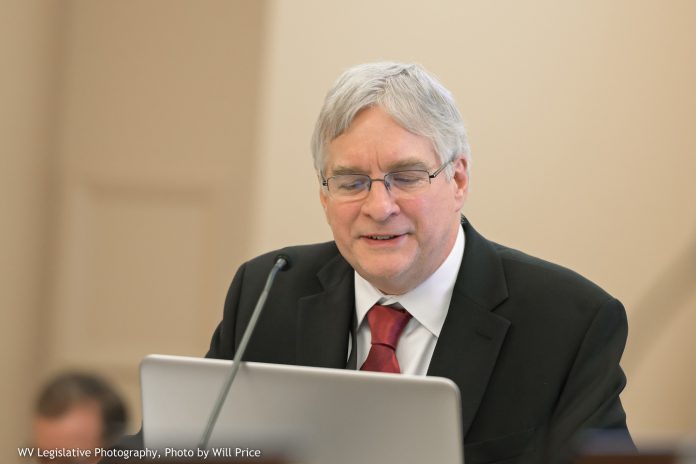A bill which would reduce the severance tax on the state’s coal became the topic of extensive debate in Wednesday’s Senate finance committee.
Following the introduction of a committee amendment to House Bill 3142, members participated in lengthy discussion, ultimately resulting in the adoption of an amended amendment and the bill being reported to the full Senate with the recommendation of passage.
Senior Vice President for the West Virginia Coal Association, Chris Hamilton, stood before the committee to address numerous concerns surrounding the proposed legislation and further explained the intentions of the bill. According to Hamilton, the state’s coal severance tax is split into two categories; thermal and steam. If passed, the bill would effect the amount of severance tax which is given back to the state and to counties.
Currently the state receives 4.65 of the tax while counties receive .35. House Bill 3142 intends to reduce the state collection to 2.65 over a period of years while still allocating .35 to individual counties.
While discussing the legislation, multiple committee members questioned how the legislation could potentially impact employment in the state’s coal mines. Mark Muchow, deputy secretary for the Department of Revenue then came before the committee to explain that an impact on employment would depend on the market for steam coal, and although the market seems to be decreasing for surrounding states, West Virginia has recently experienced a 3.65 increase in coal production.
After numerous Senators spoke in favor and opposition of the bill, the committee concluded discussion of the legislation by adopting a committee amendment which was then amended by Sen. Ron Stollings, D-Boone, to require 5% of the coal’s severance tax to be allocated to counties for the purpose of economic development.
Prior to consideration of the bill, the committee also reviewed House Bills 2673 and 2807 and reported each to the full Senate.
The committee opened their meeting by reviewing multiple supplemental appropriations, all relating to reallocation of state funds to various government organizations. Following consideration, all were reported to the full body.

